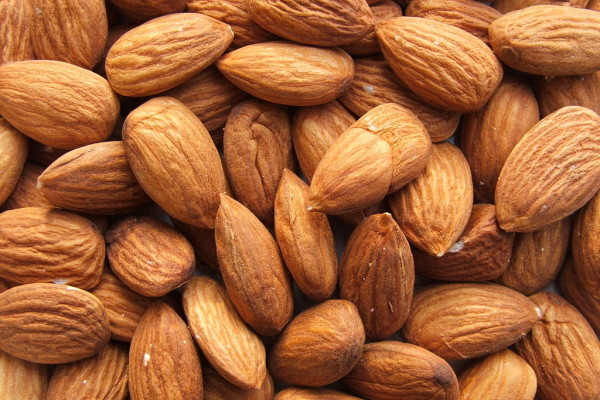This post originally appeared on Healthfooddaily.com.
This interview about the potential health benefits of eating almonds is with Dr. Sujatha Rajaram who worked on the following study: “Serum lipid response to the graduated enrichment of a Step I diet with almonds: a randomized feeding trial.”
1.Your study conclusion is that including almonds in the diet could reduce the ‘bad’ cholesterol or that ones that are not High-density and therefore can improve the lipid (fat) profile in the blood. Is that correct?
Yes, almonds in the diet lowered bad cholesterol (LDL) without affecting the good cholesterol (HDL). So overall the ratio of LDL:HDL (bad: good cholesterol) lowered. This ratio is considered a better indicator of cardiovascular disease risk than just knowing your LDL or HDL. For example if some food lowers the bad but also the good cholesterol then there may not be overall that much protection against heart disease. With almonds we saw decrease in bad cholesterol, no change in good cholesterol and overall lower bad: good ratio which is protection from heart disease.
2. So, would a lay person, or person without much scientific education understand that eating a handful of almonds a day could help reduce the ‘bad’ cholesterol level and therefore would probably be better for their heart health?
Yes, a simple message for lay person is eat a handful of almonds or other nuts such as walnuts, pecans, peanuts and you can reduce your bad cholesterol and overall reduce your risk for heart disease.
3. If this is the case, by how much could eating almonds improve ‘bad’ cholesterol in the blood? The study says markedly improve, but what does that mean exactly?
A handful or 1-2 ounces a day should be good. In our study we used 60-70 g/d. We showed a 7% reduction in bad cholesterol which translates to 11-12% decrease in incidence of heart disease. That is very clinically relevant.
4. What might be a simple mechanism that eating almonds causes to improve heart health potentially?
Almonds have fiber, antioxidants, the good type of fat (monounsaturated: the same found in olive oil), phytonutrients all of which has the potential to reduce risk of heart disease by either lowering bad cholesterol or reducing other heart disease risk factors. So the packaging of the whole food is important. Instead of a single nutrient a combination of several good components in almonds work together and produce a greater effect on lowering bad cholesterol than if you looked at fiber alone or monounsaturated fat alone.
5. Do you believe that it might be possible one day for doctors to suggest to their patients with heart disease related to cholesterol levels to add almonds to their diets in addition to making other lifestyle changes, such as eliminating junk food and exercising more?
Nutritionists that are well informed are already making this recommendation and the American Heart Association already has issued a statement that including nuts as part of a low fat low cholesterol diet can help reduce the risk for heart disease. Nuts are now considered by health professionals to be an important component of heart healthy diets.
Image Credit: Luigi Chiesa, Wiki Commons
